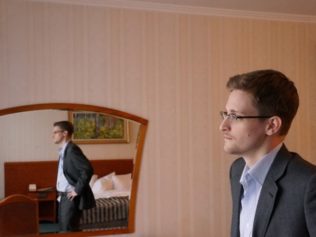In a fascinating account of the troubling nature of the U.S. military missions in Iraq and Afghanistan, Pfc. Bradley Manning yesterday pled guilty to sending secret materials to WikiLeaks, stating that he was disturbed by the American military’s “bloodlust” and disregard for human life. Manning’s action was the biggest leak of classified documents in U.S. history.
Manning’s guilty plea to 10 lesser charges carries a maximum sentence of 20 years in military prison. But in an extremely rare move for a criminal defendant, Manning pleaded guilty to those charges without making a deal with the military about the 12 more serious charges against him. Military prosecutors said they will now attempt to court martial Manning on the remaining charges, such as “aiding the enemy,” which carries a potential life sentence.
Manning denied the charge that he knowingly gave help to al-Qaida and caused secret intelligence to be published on the Internet.
The trial on those charges, which is expected to be long and complex, begins on June 3.
Manning, 25, read his 35-page statement for more than an hour at his pre-trial hearing in Maryland, recounting how he joined the military, became an intelligence analyst in Iraq, decided that certain files should become known to the American public to prompt a wider debate about foreign policy, downloaded them from a secure military database, and then ultimately uploaded them to WikiLeaks.
“We were obsessed with capturing and killing human targets on lists and ignoring goals and missions,” he said. “I believed if the public, particularly the American public, could see this it could spark a debate on the military and our foreign policy in general [that] might cause society to reconsider the need to engage in counter-terrorism while ignoring the human situation of the people we engaged with every day.”
Flanked by his civilian lawyer, David Coombs, on one side and two military defense lawyers on the other side and wearing full uniform, Manning said he believed the Afghan and Iraq war logs published by WikiLeaks were “among the more significant documents of our time revealing the true costs of war.”
He said he leaked the information because of his depression about the state of the military conflict in which the U.S. was mired.
“I wanted the public to know that not everyone living in Iraq were targets to be neutralized,” he said.
One of the incidents that seemed to bother Manning most was a video showing an infamous 2007 Apache helicopter attack on a group of people in Baghdad. It was later revealed that the group of civilians included children and two Reuters correspondents who were killed.
Manning said he was “troubled” by the military’s resistance to releasing the video to Reuters. Military officials even tried to claim that it might not still exist. Manning said he was also troubled by the cavalier attitude of the pilots in the Apache.
“The bloodlust they seemed to have, they seemed not to value human life,” he said.
He said the video showed an injured man crawling through the dust, and one of the helicopter crew is heard wishing the man would pick up a weapon so that they could kill him.
“For me that was like a child torturing an ant with a magnifying glass,” Manning said.
WikiLeaks posted the video to its now notorious “Collateral Murder” file. Manning said he was approached by a senior WikiLeaks figure that he assumed was probably WikiLeaks founder Julian Assange.
Manning said that he thought the largest portion of the WikiLeaks disclosures — 250,000 U.S. diplomatic cables from embassies around the world — would embarrass but not damage the U.S.
“I thought these cables were a prime example of the need for more diplomacy. In many ways they were a collection of cliques and gossip,” he said.


